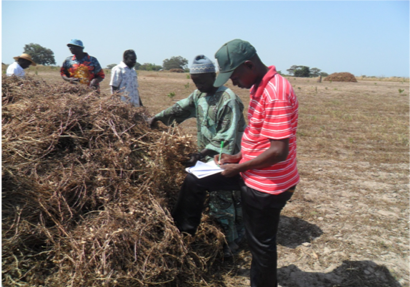Portfolios of cooperatives feature crops generally not found in those of seed companies.
The portfolios of seed-producing cooperatives feature crops generally not found in the portfolios of seed companies. These include legumes as well as propagation material for manioc and plantain. A number of cooperatives also produce seeds for (African) vegetables. In general, cooperatives produce OPV seeds. This is complementary to seed companies, which tend to focus on hybrids, although some cooperatives also have the capacity to produce hybrids.
In Liberia, seed-producing cooperatives can be found with a broad portfolio, including vegetables. According to the country study, this can be attributed to the work of the Cooperative Development Agency, established by the government to regulate and support cooperatives in diversifying their portfolio. As an example, the country’s largest seed-producing cooperative, Guma Mendi Farmers’ Cooperative, produces seeds for local vegetables such as eggplant and okra as well as maize, rice, soybean and cowpea.
Tekelaneh Farmers’ Association in Sierra Leone produces seed for pigeon pea and planting material for cassava, while COOPAD in Senegal produces fonio. A few cooperatives also work on local varieties, such as COPRORIZ COOP CA in Côte d’Ivoire, which not only produces rice seed for improved varieties from research institutes such as AfricaRice, but also for traditional rice varieties. Some cooperatives, such as COOPROSEM in Mali and CAPLABAM in Cameroon, produce hybrid seeds for sorghum and maize respectively.





